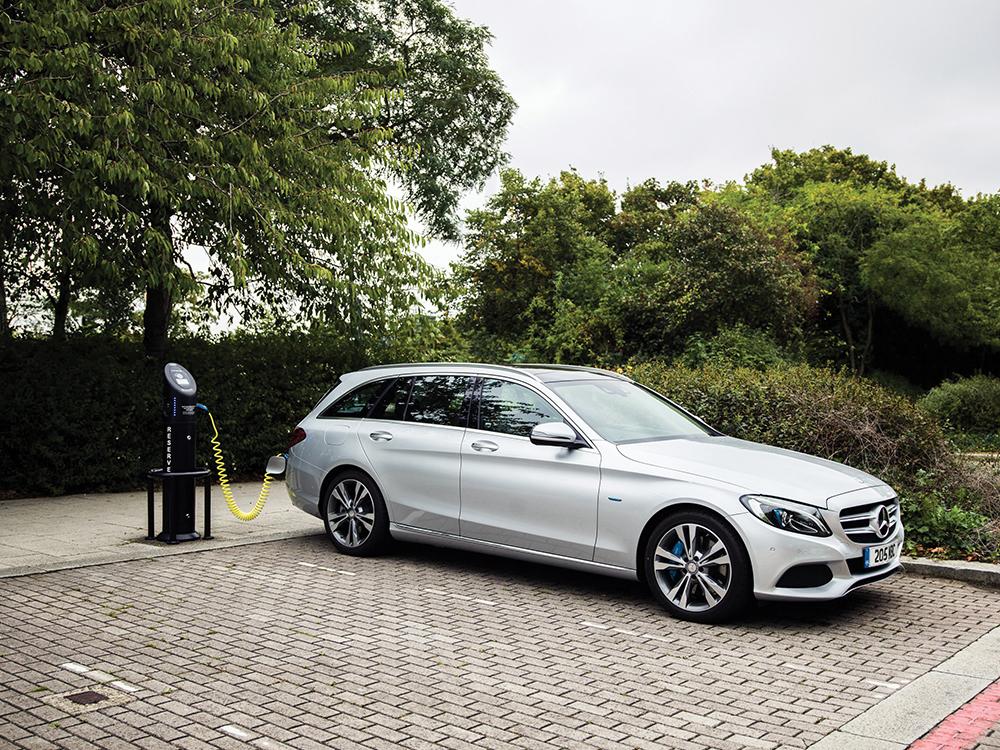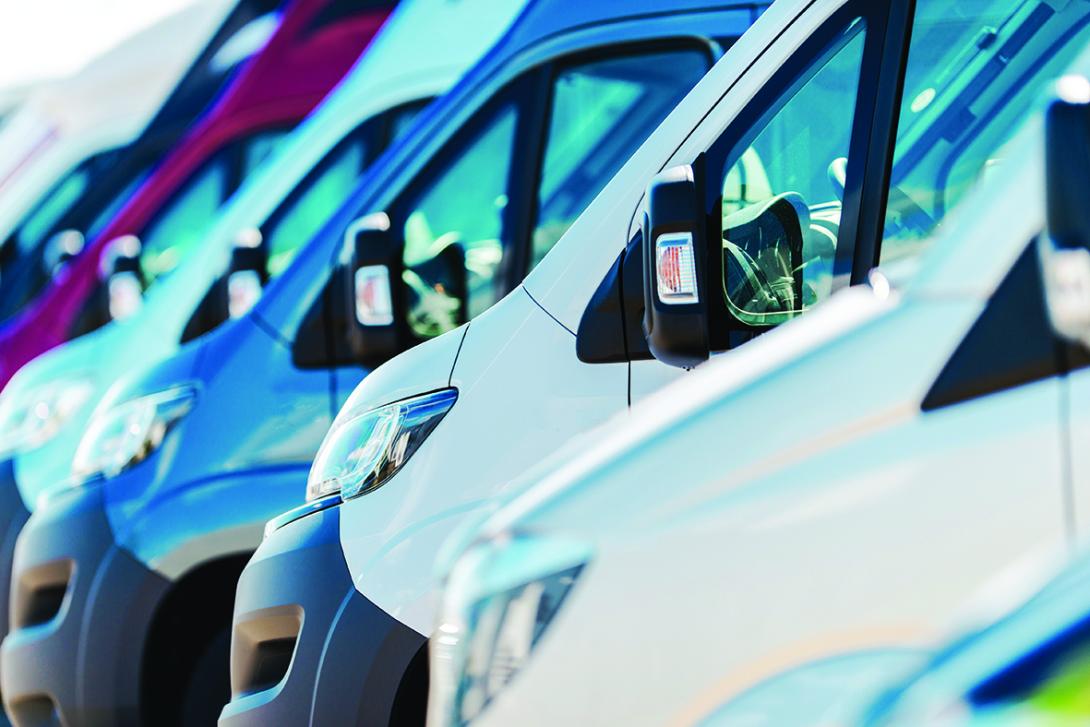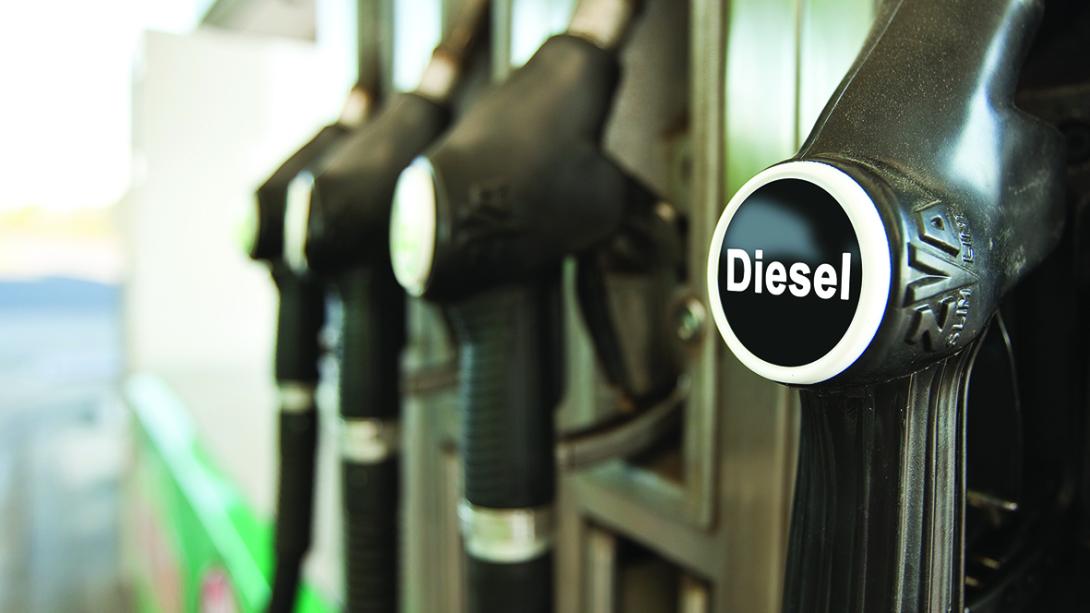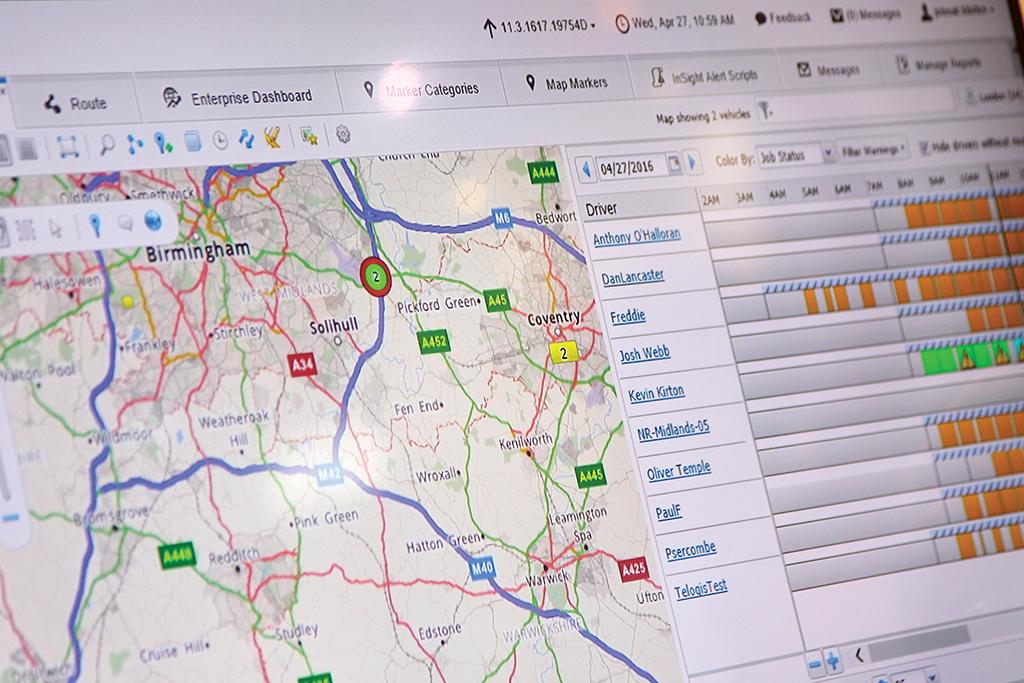Fleet management as a role has evolved over the years. Legislative changes, duty of care responsibilities, tight budgets, lowering emissions, and evolving technology have made the position much more strategic and demanding.
Legislation and policies in the automotive industry change rapidly. The government is currently consulting on proposed tax changes on company cars, there are new VED bands coming into effect in 2017, the grants for electric vehicles have changed, and Ultra Low Emission Zones will be popping up in urban centres across the UK. Even the most seasoned fleet manager may have trouble keeping up and making sure their operations run as cost effectively during times of transition.
The contract hire and leasing industry moves with the changes, adapting their expertise and services to not only offer vehicles and funding, but other services that can help organisations with the wider role of fleet management, such as maintenance management, arranging insurance, mileage management and monitoring vehicle efficiency. Leasing companies also offer consultancy to make sure fleets run as efficiently as they can.
“Legislative changes are never far-away in this fast-moving environment and can have far-reaching effects,” explains Chris Chandler, principal consultant at Lex Autolease. “A leasing company can help a business to stay on top of these and build contingency plans where necessary. Fundamentally, leasing companies need to be a source of expert knowledge and become trusted advisors for their customer’s fleet and travel operations and take a proactive and leading role.”
Shaun Sadlier, head of consulting at Arval believes that consultancy is an important part in what they offer their customers: “We support our customers to identify and deliver a range of fleet strategies which meet their specific needs and priorities. Common areas of focus include fleet efficiency, cost management, a reduction in environmental impact, compliance with duty of care requirements, and driver satisfaction.”
“Effective consultancy projects will always result in a set of recommendations which deliver tangible outcomes and benefits for the customer. This can range from cost or CO2 savings through to an improvement in driver satisfaction or safety performance.”
Filling the knowledge gaps
There are many cases where the responsibility of a fleet lies in the hands of another department, such as HR or finance, where there could be gaps in knowledge, and where fleet management can be a juggling act with other duties. In these instances, using a leasing or contract hire firm to aid with fleet management can be very beneficial.
Lex Autolease’s Chris Chandler says: “A combination of the green agenda and evolving vehicle technologies is changing the automotive landscape. When you consider that for many companies the person with responsibility for the fleet may not be a traditional fleet manager, but could be a compensation and benefits or HR manager with relatively little automotive or fleet knowledge, a leasing company has perhaps a far broader role today on fleet management than it has done historically. It has the expertise and knowledge to help a business build a fleet policy that is fit for purpose and cost-effective.”
Echoing this thought, Judith Eadie, account director at Automotive Leasing believes outsourcing all or some of fleet management can allow organisations to focus their time on more crucial tasks. She says: “Leasing companies have access to expertise and technology that a company might not have and, as a result, certain areas of management might be completely outsourced to a leasing company in order to maximise the positive impacts that a company vehicle can have. There are various services available to help with tasks such as adding a vehicle to the Motor Insurance Database, sorting out vehicle tax or arranging an MOT test. With these time drainers removed, office managers and other decision makers have more time to focus on their main job.”
Driving down emissions
The leasing and contract hire industry plays a significant role in driving down road emissions by helping the UK adopt cleaner and more fuel-efficient vehicles.
The British Vehicle Rental and Leasing Association’s latest quarterly survey of its leasing members found that almost one in 20 (4.7 per cent) of all new leased cars registered in the final quarter of 2015 was a plug-in, ahead of the market penetration achieved across all new registrations, which stood at 1.3 per cent.
Over 25 per cent of lease cars now sit in VED band A (sub-100g/km CO2) while the overall market share for all new cars sold in 2015 stands at 20 per cent.
The survey also showed that the average lease car added to a BVRLA member fleet in 2015 emitted just 112.6g/km CO2, more than seven per cent less than the average new car registered in 2015.
Shaun Sadlier from Arval says: “Purely by leasing brand new vehicles, the industry is introducing cars and vans delivering better fuel consumption and lower CO2 emissions onto the roads.”
Whilst electric vehicle adoption is growing in the UK, some organisations are still reluctant to invest due to concerns over range anxiety and a limited charging infrastructure. Many may be unsure if an EV will fit their business requirements, and may be put off by a higher up front cost. The leasing and contract hire industry can help by educating organisations on the benefits of electric and ultra low-emission vehicles, and addressing any concerns. They can help them find vehicles that will fit their business needs, explain the whole life costs, and take any risk out of owning an electric vehicle.
Chris Chandler from Lex Autolease explains: “The leasing and contract hire industry provides its customers with robust guidance and technical knowledge as to both the introduction of new plug-in technologies and the continued improvements of traditional fuels. Ensuring the correct technology is used for the right application, and that fleet policies, including fuel policies, are suitable for their introduction, is key.”
Shaun Sadlier from Arval agrees, saying that “leasing companies have an important role to play in educating and advising businesses on new vehicle technologies, the environmental benefit that they can bring, and the circumstances in which they are best deployed.”
Grey fleet
According to a report from the Energy Saving Trust, commissioned by the BVRLA, Britain’s grey fleet comprises 14 million cars – 40 per cent of all vehicles on the road. These cars are on average 8.2 years old and collectively emit 3.6 million tonnes of CO2 per year and 8,156 tonnes of NOx.
Giving employees leased vehicles can help take some of these old, polluting vehicles off the road, replacing them with new, lower CO2 models. What’s more, new vehicles have more safety features, helping with duty of care responsibilities towards drivers.
Summarising the issue with grey fleet, Judith Eadie from Automotive Leasing says: “Generally, it’s not economically friendly, safe or cost effective to use a personal vehicle for work purposes. The reality is employers are legally responsible for employees driving for work, regardless of who owns the vehicle and so they should consider cost-effective alternatives such as teleconferencing, public transport, car clubs, hire or lease cars.
“Leasing companies have access to insight into vehicles that individual drivers might not. This macro view allows them to help organisations track the performance of their fleet. Any vehicles that are not performing in a way that is economically friendly can be repaired or removed accordingly – and using its supplier network vehicle downtime can be minimised.”
Looking towards 2050
In December 2015, the UK was one of 13 international members of the Zero Emission Vehicle (ZEV) Alliance to sign a commitment to promote cleaner motoring and slash transport emissions, including an agreement to make all passenger vehicle sales zero emission vehicles by 2050. So what needs to happen for this to become a reality, and what role will the leasing and contract hire play?
The range of electric vehicles, and the somewhat limited charging infrastructure are the biggest barriers for Shaun Sadlier from Arval, although he says things are improving: “We are starting to see the manufacturers announce some significant improvements in vehicle range making plug-in vehicles a more practical option and this improvement in battery capability will need to continue.”
“The network for refuelling or recharging needs to grow, irrespective of whether this is for electric or hydrogen powertrains. It needs to be fast and convenient for drivers to refuel, particularly those on long journeys which many employees will regularly carry out, particularly sales teams.”
Aside from the practicalities of range and infrastructure, our panelists agree that education again plays a key role in getting people to buy into electric.
“The industry’s challenge is to educate motorists as to which new fuel technology is the most suited to their driving styles and patterns,” explains Chris Chandler from Lex Autolease. “Rather than questions about brand style and image, drivers should be asking what sort of vehicle technology is the best for the kind of driving they do. By working in partnership, industry bodies, suppliers and manufacturers can raise awareness of the potential of new vehicle technology and help motorists find what works best for them.”
Shaun Sadlier from Arval agrees, adding: “As a leasing company we have a key role to play in supporting and advising our customers on the implementation and efficient usage of alternatively fuelled vehicles. In doing this our customers will get the best from these vehicles which in turn will drive further adoption.”
“Leasing companies need to be in a position to test, demonstrate and report back on the latest technologies so that they can provide practical advice to customers. That’s precisely why we are taking part in a new trial to operate and lease a small number of hydrogen vehicles.”
Going back to the changing policies and incentives surrounding zero and ultra low emission vehicles, Judith Eadie from Automotive Leasing says: “Just like the technology inside these vehicles, the policies around them are moving quickly. This is where the leasing industry can step up to the plate. As well as working with manufacturers to provide customers with access to ULEVs, leasing companies can use their expertise to educate them about any changes in policy and offer advice.”
Where is the industry going?
Alongside the evolution of zero and ultra low emission vehicles, there are other changes happening in the automotive industry. People are beginning to look at other ways of travelling aside from car, and viewing mobility as a service. This could include a mix of car sharing, car clubs, and public transport. Car clubs are particularly popular in cities where traditional car ownership may not be practical due to parking restrictions and congestion zones.
Another major way the industry is changing is the advent of self-driving cars. Whilst it may seem like an idea way off in the future, trials are happening today to test their viability.
“With autonomous, or semi-autonomous, vehicles on the horizon, this is arguably the greatest transition for drivers in 100 years,” says Shaun Sadlier from Arval. “For this reason, businesses will rely heavily on their leasing provider to cut through the information available and the vast choice, to advise them on the best solutions to meet their business objectives today, and in the future.”
Chris Chandler from Lex Autolease says: “Fully autonomous vehicles are also increasingly a near‑term reality, with huge potential for changing the infrastructure and legislation of our roads.
“In-car connectivity is also becoming more important with many new drivers more interested in the vehicle’s connectivity potential than the badge on the bonnet.”
Sharing her vision of future mobility, Judith Eadie from Automotive Leasing says: “One thing’s for certain, the car will remain king. But urbanisation is set to grow and technology will drive continuous transformation, which means the palette of mobility solutions and individuals’ attitudes toward them will also continue to change.”
“It’s inevitable that over the next five‑to-ten years we will continue to see a demand for the use of vehicles, spurred by a combination of development to include individual-focused solutions that will make cars easier to access than ever before. For example, Uber has grown almost 40-fold over the last four years and new ride sharing companies like GoMore allow individuals easy access to cars to get them from A-B.”
Expert final thoughts
Shaun Sadlier
"With autonomous, or semi-autonomous, vehicles on the horizon this is arguably the greatest transition for drivers in 100 years. For this reason, businesses will rely heavily on their leasing provider to cut through the information available and the vast choice, to advise them on the best solutions to meet their business objectives today, and in the future. However, some things won’t change – despite the dynamic landscape that we operate in, businesses will remain focused on areas like fleet efficiency, cost management, employee recruitment and retention and duty of care – the difference will come through the solutions that we offer."
www.arval.co.uk
Judith Eadie
"By 2025, we expect to see the number of cars on the road increase from 1.2 to 2 billion, bringing with it growth in the number of issues that impact the globe – infrastructure, road congestion and carbon emissions, among others. Collaboration is essential for our transport industry to evolve and become future-proof. In order to address the potential issues and threats, stakeholders will have to work together to provide solutions that keep all needs addressed. So, alongside government, auto manufacturers and other stakeholders, the leasing industry will have to play their part in helping this transformation take shape."
www.easiertoleaseplan.co.uk
Chris Chandler
"New fuel types and vehicle technologies are going to be the major game changers into the future. Legislation is driving cleaner vehicles, and the desire for more connected vehicles and tech within cars such as autonomous driving is challenging existing legislation. Our role in this ever‑changing environment remains constant. Through our depth and breadth of knowledge and expertise, we advise our customers on the most effective and cost‑efficient vehicle and fleet policy to suit their specific business and driver needs – no matter whether in the future that vehicle is a hydrogen fuel‑cell‑powered, driverless car or a pure electric van."
www.lexautolease.co.uk






